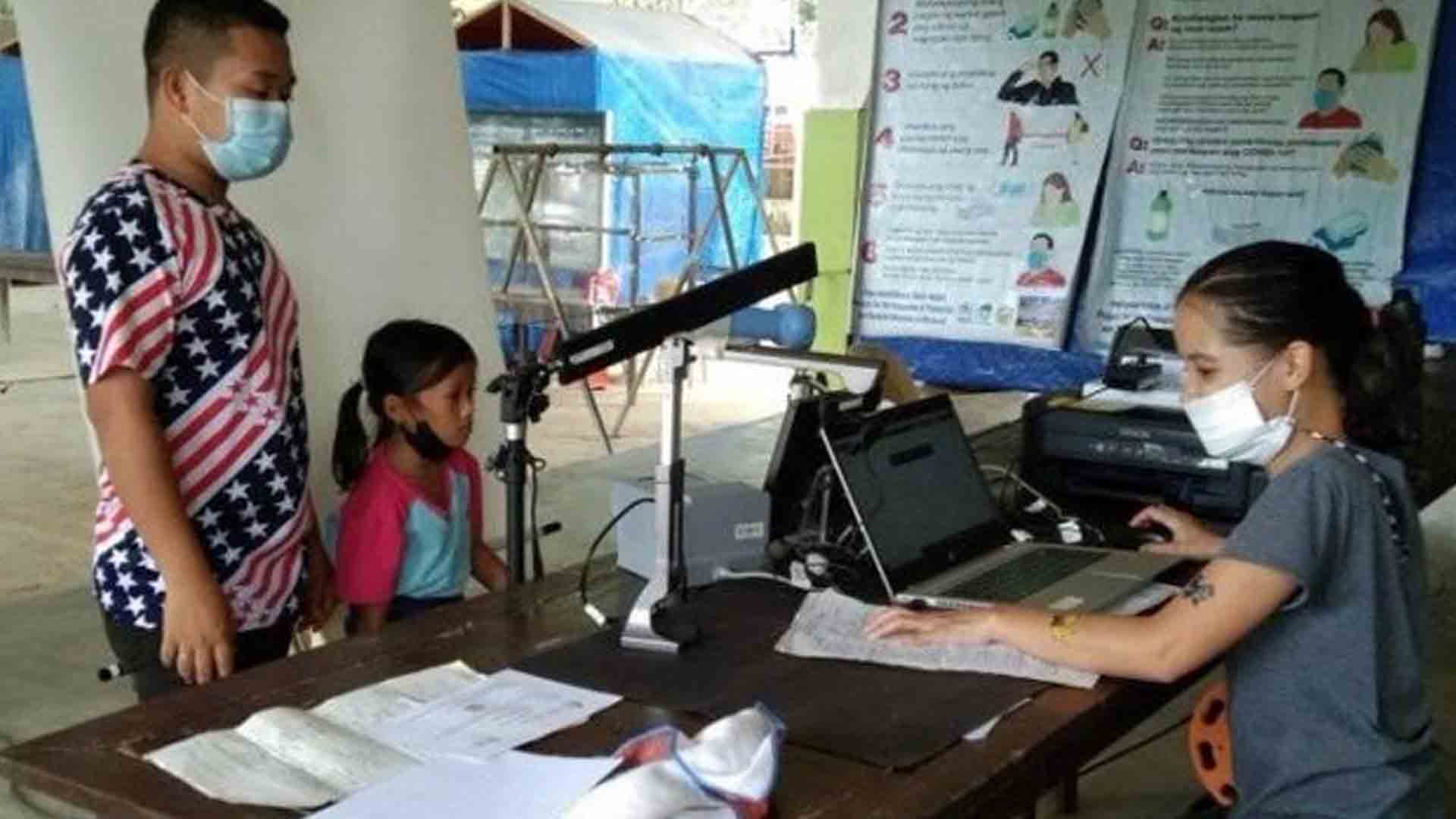The Philippine Statistics Authority (PSA) has partnered with various villages to speed up the Philippine Identification System (PhilSys).
In Barangay Salvacion in Monkayo, Davao de Oro, PhilSys representatives and local officials conducted a mobile registration for the Philippine Identification (PhilID) on October 9 and 10.
At least 150 enrolled for the national ID at the covered court, including residents as young as five years old accompanied by their guardians.
PhilSys area supervisor Noli Ramirez and Salvacion officials headed by Othelio Sumatra facilitated the registration.
Ramirez said the registration process ended smoothly, with applicants strictly observing the mandated standard health protocols.
“The mobile PhilSys registration in Barangay Salvacion was successful. Registrants as well as PhilSys staff followed the health protocols like wearing face mask, distancing, and washing of hands or using alcohol,” Ramirez said in an interview on Friday.
He narrated that the residents they talked to said they have long been waiting to get a PhilID.
More than 34 million Filipinos have finished the registration process as of September, with at least a million registrants each from 11 areas — National Capital Region’s Camanava (Caloocan, Malabon, Navotas, Valenzuela), Bulacan, Pangasinan, Pampanga, Iloilo, Negros Occidental, Cebu, and Leyte.
As of September 22, a total of 5,024,018 PhilID cards have been released to the Philippine Postal Corporation for delivery.
PSA said in previous statements that the national ID system ushers in the country’s move toward a digital economy.
Signed into law by President Rodrigo R. Duterte in August 2018, Republic Act 11055, or the Philippine Identification System Act, aims to establish a single national ID for all Filipinos and resident aliens.
The national ID shall be a valid proof of identity that shall be a means of simplifying public and private transactions, enrollment in schools, and the opening of bank accounts.
It also seeks to boost efficiency, especially in dealing with government services where people will only need to present one ID during transactions. (PNA)







